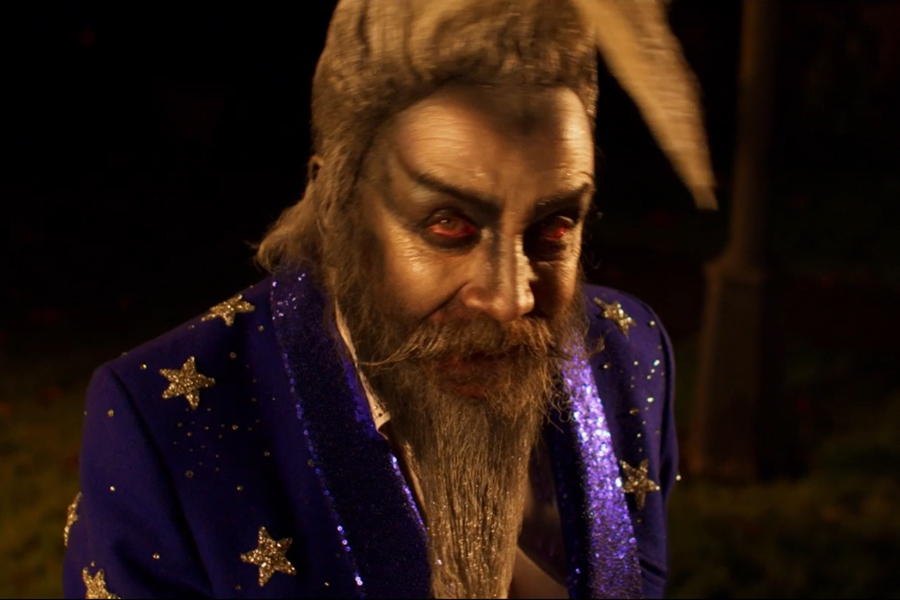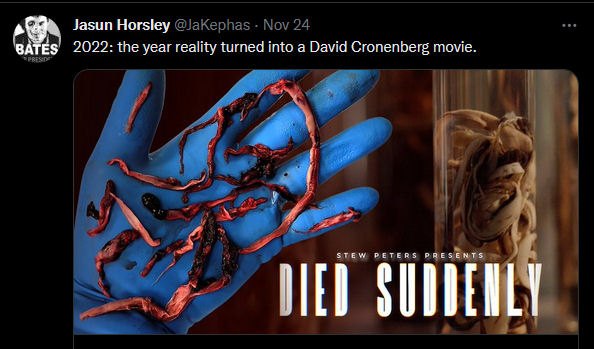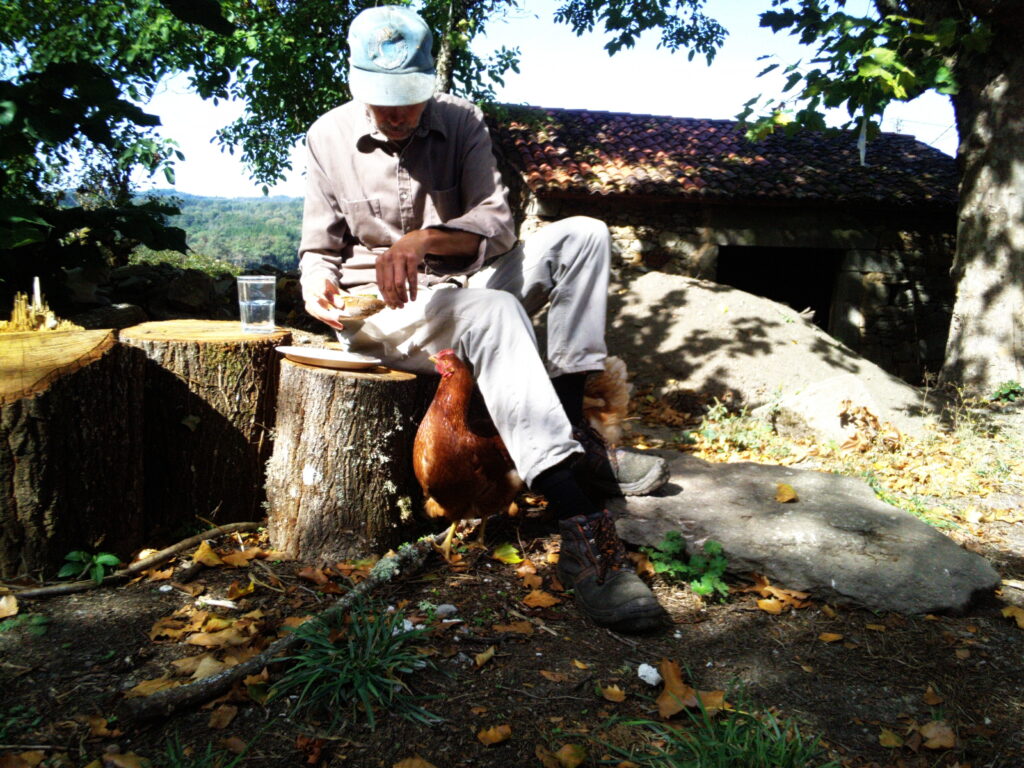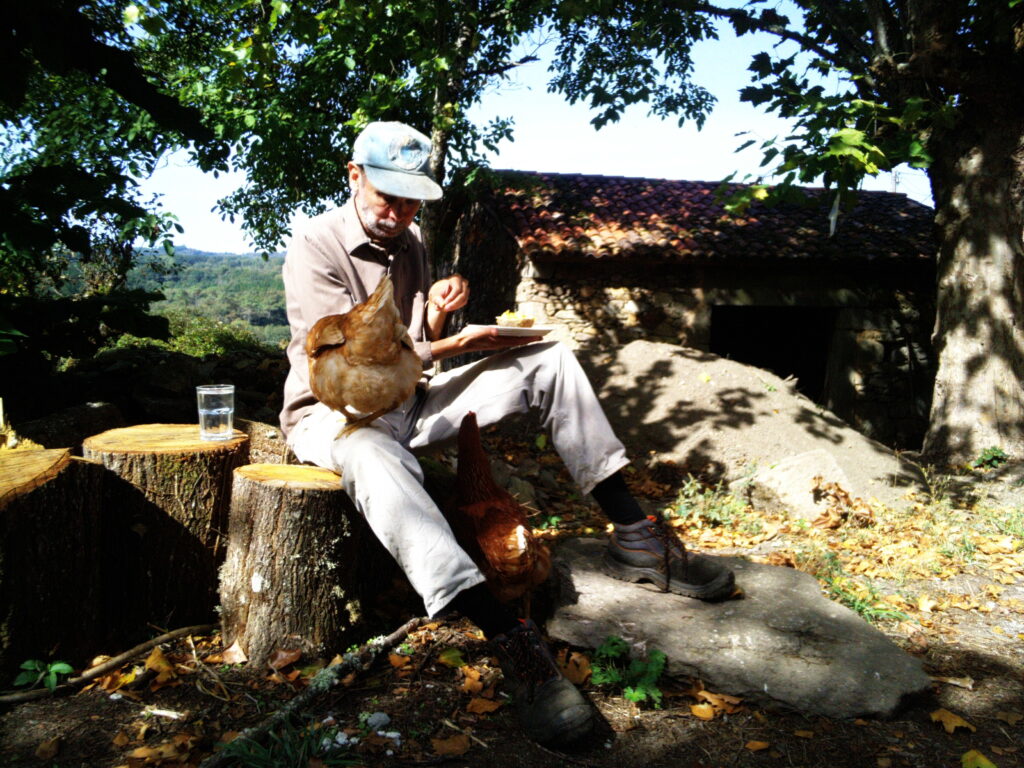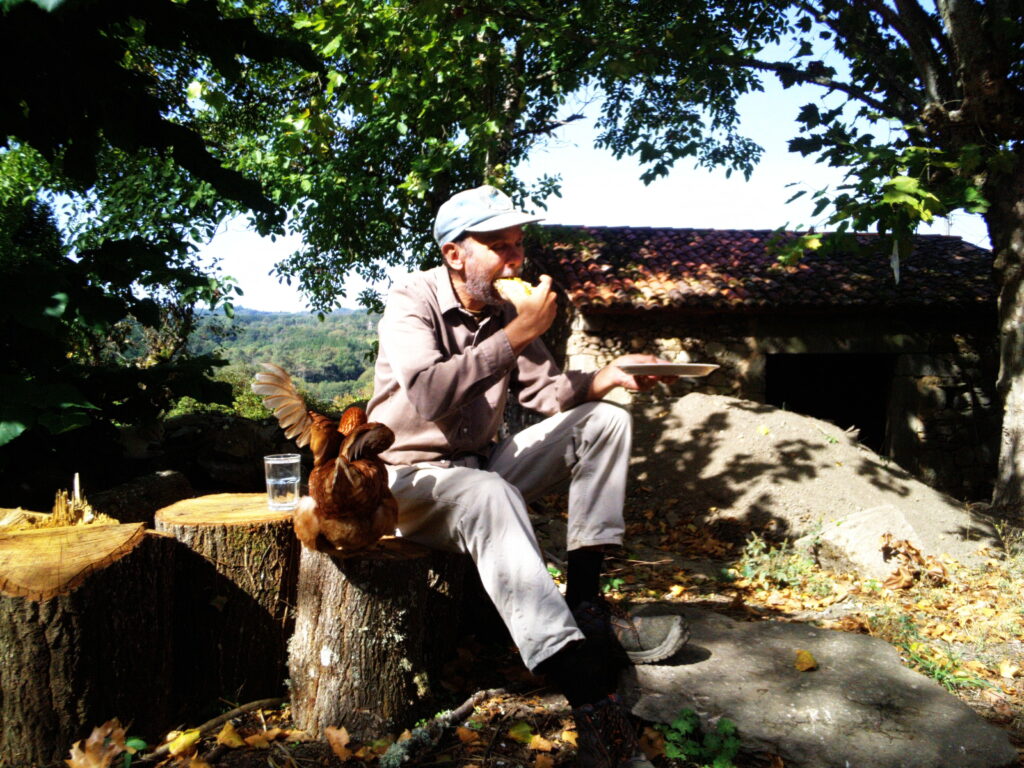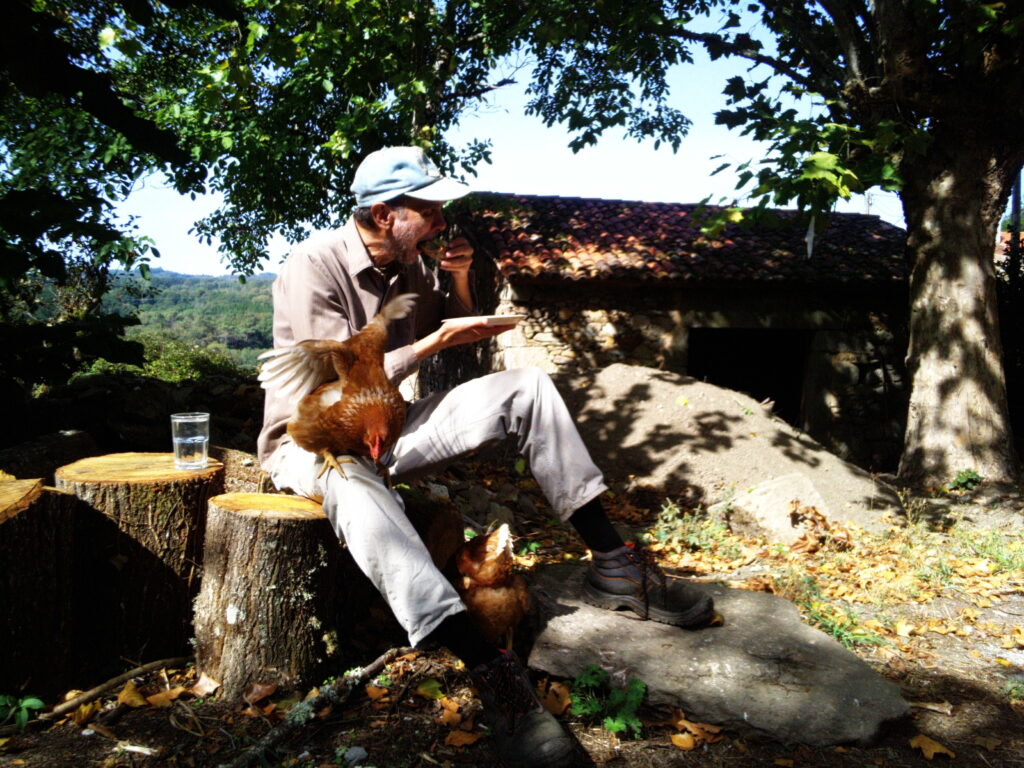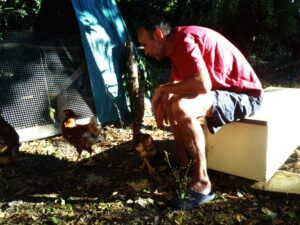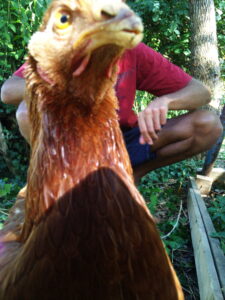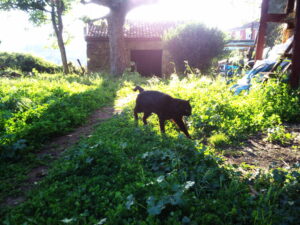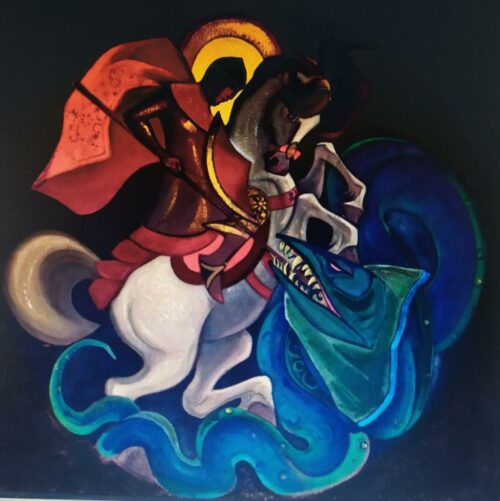Inspired by news that Alan Moore is still socially isolating in 2022 and “knows” the corona virus was created in a lab, I dug up this old account from 2007: the year my childhood Alan Moore fantasy bubble finally & irrevocably burst.
Last night I met Alan Moore, the famous comic book writer. I have admired Moore ever since I read Watchmen at age twenty and it consolidated my intuition (make that obsession) that I was living in the End Times. He was a formative influence. Naturally, I’d wanted to meet him for years.
Over the years, I’d had dreams of Moore that seemed somewhat “sorcerous”; since Moore admits to being a practicing magician, I assumed, as one does, that we were fellow astral travelers. One day, I was staying with an autistic friend Mark Lawn in Bedford.
“Let’s go to Northampton and find Alan Moore,” I said.
Mark didn’t hesitate for thought. “OK,” he said, and off we set.
We had no clue where Moore lived or how to find him, so we didn’t have any plan. We just drove to the town and started wandering around. Half an hour later, Mark spotted Moore. He was easy to spot, since he has a huge wizard’s beard and carries a magician’s staff. He was with a female companion and as we spotted him they were entering a restaurant called Pizza on Earth. We followed him in and sat down a few tables away. I ordered tea and cheesecake and we pretended to have a normal conversation.
Moore and the woman eventually finished their pizza, and as they were getting up to leave, I went over and introduced myself. He was courteous and gracious in response to my praise, and I gave him the printed sheets of writing I’d brought along for the occasion, excerpts from the as-that-time-unpublished Homo Serpiens by my alter-ego Aeolus Kephas.
He glanced at the papers and said, “You’re Aeolus are you?”
I said I was and told him I’d left a number for him to call me if he got the chance.
“Things are pretty hectic right now,” he said, and we parted ways.
Moore never called the number I gave him but I was satisfied that I’d proved there was a connection between us, and that my sorcery was powerful enough to have found him when I set out to do so.
*
Several months later, I found out that he was taking part in a discussion at Bishop’s Gate, tied to the release of some book called Disappearing London, with fellow writers Ian Sinclair and Michael Moorcock. I arrived early and got a front row seat, next to an American girl who was totally starstruck over Moore and not in the least embarrassed by it. Her slightly pathetic infatuation seemed like the Universe’s way of gently chiding me.
As the auditorium filled, Moore was hanging around with the other two writers. I got him to sign a copy of Promethea. He showed no sign of recognizing me. I was about to remind him of our previous meeting when someone else approached with a book. Moore asked to borrow my pen so I wound up waiting. The American girl joined us and asked me to take a photo of her with Moore. I took the opportunity and mentioned to him that we’d met before.
He remembered me then, so I asked if he’d read my writing.
“Probably not all of it,” he said. “I haven’t read a book all the way through in about three years.” He then made a noncommittal remark about it being “interesting,” adding that it was not quite “his way” of seeing things.
I could see he was being polite, that he was unwilling or unable to feign enthusiasm. This was something I hadn’t expected. I loved his work, why wouldn’t he like mine?! My plan had been to ask him for a quote for when the book came out. Now it was clear this was not an option.
Moore didn’t seem especially comfortable with me, presumably because he couldn’t praise my work and because I plainly wanted him to. He tried to appease my disappointment.
“You’ve obviously put a lot of energy into it,” he said, then reiterated that it didn’t quite agree with his “system.”
I replied that I didn’t think my book was a magikal system, so much as an overview. He nodded and said that “the kind of magikal thinking” wasn’t the same as his.
I was trying to think of a way to find out what he meant exactly, but he clearly wasn’t open to talking about it. He wished me good luck and patted me on the arm, then walked away.
I watched him go. To my amusement, he sat down in the empty seat next to mine. I had no choice but to sit down next to him!
“You don’t get away from me that easily!” I joked. He didn’t laugh, and seemed distinctly uncomfortable. He wanted to talk to the woman on his left (it was the same woman I’d seen him with in Northampton) but she was engaged in conversation with someone, so he sat for a moment, unsure what to do. Before I could launch my next attack, he muttered something, got up, and went back to the other writers.
*
During the talk he was sat directly opposite me and had no choice but to look at me, at least some of the time. I got the feeling that he was disturbed by my presence. The reading and discussion was very dull, and it occurred to me—while I was processing my disappointment over the encounter—that, besides Promethea, nothing Alan Moore had written in the last ten years or more (probably since From Hell) had impressed me that much. So why was I so hung up on gaining his approval?
The answer is simple: he was one of literary heroes in my formative years, and I had become fixated on connecting to him and making him part of my personal history. He had become an obsession.
The result of the encounter was that my obsession ended. Disappointing as it was not to be “met” at the designated sorcerers’ appointment, the main thing—the only thing—was to have found out that Moore and I weren’t and never would be cohorts. Now I could put my fascination for him away, along with an ever-growing collection of childish things, like those stuffed toys of my past.
“Failure” is a far greater teacher than success.

